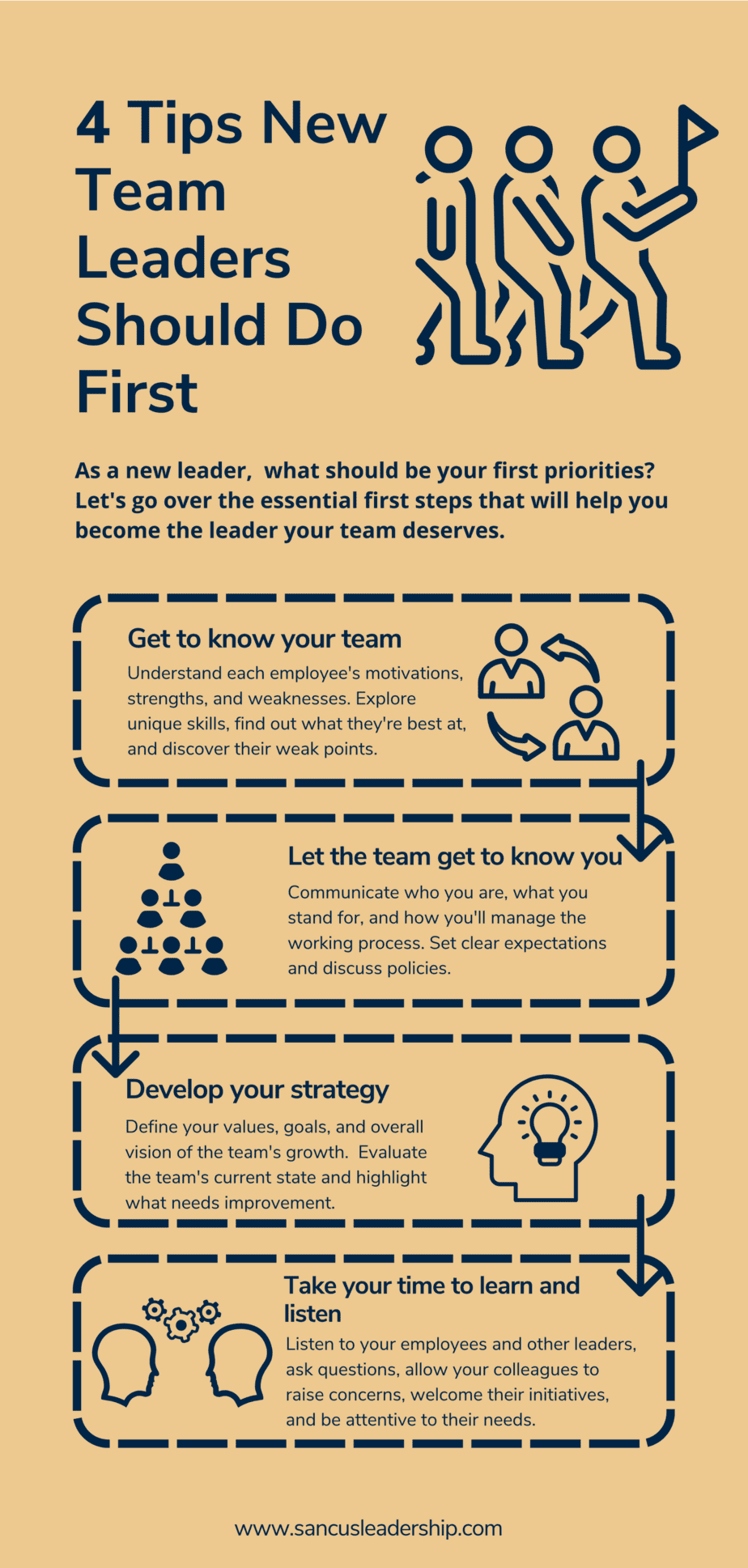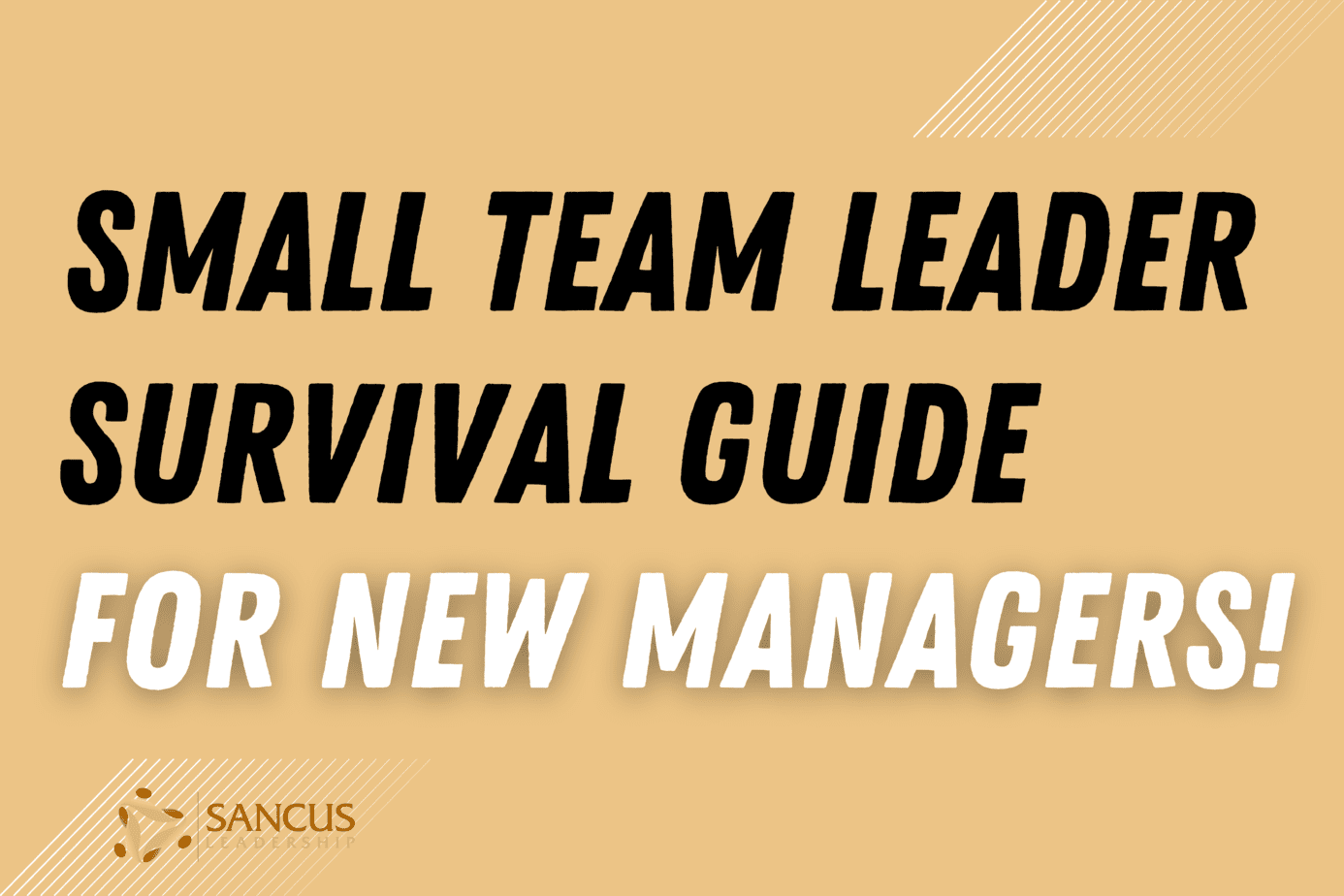Being a new leader can feel intimidating, especially when part of a small team or startup with little room for error. As a new leader, you’ll need to be on top of things and get to grips with your duties as soon as possible, lest you struggle and convince team members of your capabilities. So how do new leaders survive?
A new leader should get to know their team and develop a clear strategy that everyone understands. It would be best if you were honest and transparent to gain the trust of all team members. Pay attention to what all team members have to say, and take your time to adapt to your new position.
In this article, I will explore the main challenges new leaders face and share tips on how to overcome them. I will also discuss how to build the right strategy and win the trust and respect of employees to get you started on the right foot.
How Do New Leaders Gain Trust?

Managing a team successfully is only possible with mutual trust between you and your colleagues. As a new leader, you should prioritize building trust and focus on your relationships with employees.
New leaders gain trust by practicing honesty and openness. You can also gain your team members’ trust by avoiding controlling behavior, recognizing small wins, and standing up for your team.
However, this process can be challenging, even more so if you are new in this position. Let’s take a closer look at how you can gain your team members’ trust and create a positive work culture.
New leaders gain trust by practicing honesty and openness.
1. Be Honest and Open
Honesty is the basis of trust; one is impossible without the other. If you lie to your employees or don’t keep your word, they won’t feel psychologically safe around you and won’t take what you say seriously.
This will significantly damage your relationship and negatively impact the team’s productivity. When employees don’t trust their leader, their involvement decreases, performance suffers, and they become less confident in their job and those who work alongside them.
Similar outcomes are to be expected if you conceal information from your employees, refuse to provide reasoning for your decisions, or share details beyond the bare scope of each team member’s work.
On the other hand, when your colleagues see that you respect them enough, to tell the truth, they’ll trust you more. Transparency in your decisions, actions, and plans will increase your team members’ confidence in your leadership, and they’ll be more willing to follow and rely on you.
Transparency in your decisions, actions, and plans will increase your team members’ confidence in your leadership, and they’ll be more willing to follow and rely on you.
2. Avoid Controlling Behavior
Another fundamental step to building trust is showing your employees your confidence in them. This is impossible if you micromanage extensively and aim to control every single working process.
Managing the team as a new leader takes some time to get used to, and you need full transparency and accountability to see the picture clearly. However, such behavior signals to your workers that you don’t trust them enough to do their job right.
When they don’t feel trusted, they are also not likely to trust you. On the other hand, a decent amount of freedom for the team shows your confidence in their abilities and competence, improving your relationship significantly.
Even if you don’t know the team well or are unsure if everyone is in the right position yet, giving the employees some space and a chance to prove themselves is essential. Be clear about your goals and expectations, and let your team members do their job.
3. Stand Up for Your Team
Finally, show your employees they can rely on you. Create a sense of unity and support the team spirit by being clear that you are a part of this team as much as everyone else.
Help your workers when they reach out to you and encourage them to do it. Accept and understand their mistakes and stand up for them when you have to. Show them you’re on their side, and you’ll quickly gain their trust.
It’s also important to provide positive feedback when your employees show outstanding performance and work hard. Show your appreciation for their efforts and let them know you notice and value their input.
Appreciating small wins will improve your team member’s sense of belonging, as they’ll feel like they’re contributing to a greater cause. This improves trust in the workplace and your employees’ job satisfaction.
Appreciating small wins will improve your team member’s sense of belonging, as they’ll feel like they’re contributing to a greater cause.

What Do New Leaders Struggle With the Most?

Gaining employee trust is not the only challenge new leaders face. Let’s discuss the most common struggles when managing a team and learning how to deal with them efficiently.
Adapting To Authority and Responsibility
Whether it’s your first time accepting a leading role or meeting a completely new team you’ve never worked with, the new job responsibilities and the power you get to take some time to get used to.
If you used to be part of the team, you might struggle to accept the authority you now have and exercise it. Communication with colleagues will be key to finding the balance in this situation. Be an inspiring and trusted leader to earn the respect of your peers and stay in touch with them.
Learning To Delegate
Switching to your new responsibilities and making them your main focus is both your goal and possible struggle. If you’re used to working as a part of a team, you may find it hard to concentrate on managing teamwork instead of actually doing it.
However, your job as the leader is to organize and lead the working process. You need to trust the employees to perform their duties and focus on making them a better team. This requires a high level of trust, open communication, and setting clear expectations.
Building Relationships
Finally, new leaders have to gain the loyalty of employees, earn their respect, and prove themselves credible enough to be followed by others. It can be hard to balance authority and personal relationships; however, finding this balance is crucial for your success.
What Should a New Leader Do for the Team?

| Tips for a New Leader | Explanation |
| Set Clear Goals and Expectations | Clearly communicate team goals and company objectives to team members, connecting them to their duties and responsibilities. Ensure everyone understands their job and what is expected of them. |
| Ensure a Safe Working Environment | Manage the working environment to create a psychologically safe space for the team. Foster an atmosphere where workers feel valued, respected, and safe to ask questions, express opinions, and debate. |
| Communicate | Establish healthy communication with the team by talking to colleagues, providing honest and constructive feedback, and encouraging fruitful discussions. |
| Be an Example | Set an example for the team by implementing your approach to work and inspiring others to follow your lead. Treat your workers with respect, show the qualities and dedication you expect of them, and communicate your values and vision for future teamwork. |
Set Clear Goals and Expectations
One of your responsibilities when managing a team is to make sure all members understand company goals and their roles in achieving them. So, when you come as a new leader, make sure to have this conversation early on.
Your task is to clearly communicate your team goals and the company’s objectives, connecting them to the duties at hand and the responsibilities of the workers. You must also express your vision of the team and how you plan to organize the working process.
Ensure that everyone understands their part of the job and what you expect of them. Clear expectations are crucial for healthy professional communication and efficient teamwork.
Clear expectations are crucial for healthy professional communication and efficient teamwork.
Ensure a Safe Working Environment
As a leader, you are also in charge of managing the working environment. Your organizational skills, transparency, and relationship with workers will determine how psychologically safe that environment will be; here’s an article on how to asses psychological safety in your team.
Management changes bring uncertainty and can be stressful for the team. When leading them, make sure to be attentive to the state of team morale and the degree of emotional safety of your employees.
A healthy and safe working atmosphere will open the way for new initiatives, better communication, and higher productivity. The workers should feel safe asking questions, expressing opinions, debating, and disagreeing. They should know they are valued within the team and treated with respect.
Communicate
Communication is vital, especially when you start leading your new team. It is essential for many aspects of your success, from efficient management to keeping the team morale high.
Talk to your colleagues, provide honest and constructive feedback, and encourage fruitful discussions. During meetings, show appreciation for questions, ask for opinions, and be open to conversations.
Healthy communication will help you avoid potentially disruptive issues along the road. When expectations are clear, and boundaries are defined, it’s easier for team members to do their job as expected. When mistakes and problems are discussed constructively and without judgment, the team grows, and performance improves.
Be an Example
One of the most helpful things you can do for the team is to set an example. It’s best to implement your approach to the team’s work and inspire others to follow your lead.
When you talk about your values and explain your vision for future teamwork to the employees, ensure you are an excellent example of the attitudes and behaviors you expect. Treat your workers the way you want them to treat you and each other, and show the qualities and dedication you expect of them.
Treat your workers the way you want them to treat you and each other, and show the qualities and dedication you expect of them.
What New Team Leaders Should Do First

So, how do you start leading your team to success? What should be your first priorities? Let’s go over the essential first steps that will help you become the leader your team deserves.

1. Get To Know Your Team
Start by meeting your team members and getting to know them better. The key to managing a team successfully is understanding each employee’s motivations, strengths, and weaknesses.
You have better chances of succeeding if you implement an individual approach and acknowledge the uniqueness of each worker.
Take the time to explore your employees’ unique skills, find out what they’re best at, and discover their weak points or things they need to improve on. You’ll find that leading a team is much more efficient when you have a clear picture of your colleagues’ capabilities and potential.
Their personality traits and working habits also influence overall productivity. As a leader, you will benefit from knowing how they prefer to work, what makes them comfortable or uncomfortable, and what motivates them to go forward.
Some employees may be more productive in the morning, while others will perform better in the evening. Certain team members will be more comfortable working independently, while others are great collaborators. When managing your team, consider such nuances to ensure everyone performs best.
2. Let the Team Get To Know You
Introducing yourself to the team properly is no less important. As a new leader, you need to clearly communicate to your colleagues who you are, what you stand for, how you’ll be managing the working process, and give answers to other important questions.
Include these answers in your introductory speech, and go beyond reciting your resume’s points. Be more personal and tell your career story in an engaging way that will let employees know you are a reliable leading figure. I suggest you learn why public speaking is so important in leadership.
Explain what kind of leader you’ll be and what they can expect while working with you. Set clear expectations and discuss your policies. Your goal is to show that employees can trust you and count on your help and that there are clear rules and boundaries that will navigate the working process.
Communication is key, so it’s in your best interest to be open to it, especially as you get started. Some personal time with each team member is also necessary. Let the employees ask questions, discuss the points that concern them, and get to know you better.
3. Develop Your Strategy
To manage the team successfully, you need a defined working strategy. It should be defined by your values, goals, and overall vision of the team’s growth. Decide what kind of leader you want to be and develop your personal leading style.
Look around to evaluate the team’s current state and highlight what needs improvement. Listen to what the employees have to say as you build strategies that will lead the team to success.
Make sure to communicate your strategy to colleagues in detail. Be clear and transparent about how you want the working process to be organized, how responsibilities will be shared, and what will not be tolerated.
4. Take Your Time To Learn and Listen
Most importantly, don’t rush into things. As a new leader, you’ll need time to understand your current working environment, adapt to your new role, meet your employees, discover their professional and personal preferences, and much more.
Listening to your employees and other leaders as you navigate your new position is crucial. Be open to conversations, ask questions, allow your colleagues to raise concerns, welcome their initiatives, and be attentive to their needs. Always look for ways to improve your own performance and perfect your leadership skills.
Below is a quick video of Simon Sinek during an interview talking about the importance of building trust through committed leadership.
Conclusion
New leaders should prioritize building healthy relationships with employees, earning their trust, and creating a safe environment. Be open and communicative, especially at first, and give everyone a chance to know you better and understand what working with you will be like.
Your first steps should be defining your vision for the team and developing a strategy for leading them. Communicate your expectations and goals to everyone and define the roles and responsibilities of the employees. Most importantly, take your time to get to know the people you’re working with and their working process.



